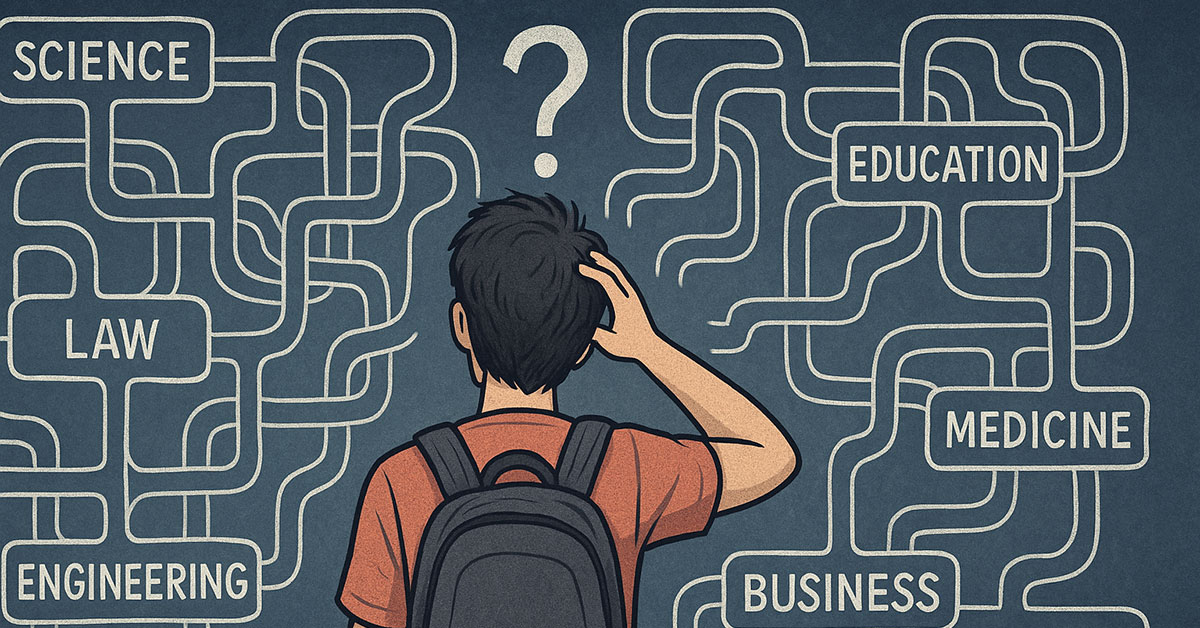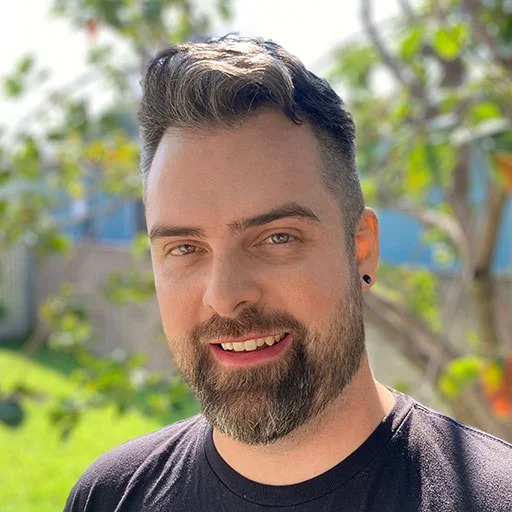Like a lot of people, I didn’t have it all figured out when I went off to college. I wasn’t one of those kids who knew from day one what they wanted to be. What I did know was that I liked writing, I was curious about how people think, and I had a fascination with the ocean. I just didn’t know how to turn any of those things into a career.
My college journey started at Humboldt State University (now Cal Poly Humboldt), tucked away in Northern California in a quiet town called Arcata. It’s a 12-hour drive from the LA area, but it felt like an entirely different world—surrounded by redwoods, close to the ocean, and full of quirky people. I went with a group of friends who were also accepted, which made the transition easier.
I chose to major in English. I’d done well in AP English in high school, and it seemed like a safe choice. But pretty quickly, I realized that studying literature and writing papers about other people’s writing wasn’t something I wanted to do for four years—let alone build a career around.
So I switched to Psychology. I was genuinely interested in human behavior and what made people tick, but again, I found myself questioning the long-term path. I couldn’t picture myself working in mental health, and the academic track felt like a poor fit for how I learned.
By the end of freshman year, I was already on my second major and still unsure of my future. I decided to take a break.
Resetting at Community College
I moved back to Ventura and enrolled in community college to finish my general education and earn my associate’s degree. The plan was to buy myself some time, knock out the core classes, and come back to a four-year university with a clearer head.
While revisiting my past classes, I remembered how fascinated I had been by a marine biology course in high school. There was something alien and mysterious about the ocean that had always intrigued me. So when it came time to pick a new direction, I chose marine science. Humboldt State, as it turns out, had one of the best programs in California for ocean-related studies. That, along with the pull of old friendships, led me back up north to give college another shot—this time as a Marine Biology major.
I moved off-campus with friends, which changed the entire college experience. No more dorm rules or dining hall food—I felt more like an adult. But even as I dove into the coursework, something didn’t feel quite right. Marine Biology was interesting, but the hyper-focus on animal life didn’t fully engage me. Once again, I started questioning whether this was the right fit.
So I pivoted again, this time to Oceanography. It felt broader—like I could study the physical systems, the chemistry, the geography of the ocean, not just the biology. That variety was appealing, and it kept me engaged longer than any of my previous majors had. It finally felt like I was on a path with momentum.
Real-World Wake-Up Calls
Then came the research cruises.
Humboldt had a dedicated vessel called The Coral Sea, and as an Oceanography student, I was required to participate in data-gathering trips out in the bay and along the coast. It was hands-on and exciting—at least in theory.
The reality? I got violently seasick. Almost every trip.
It didn’t matter what I took or tried. I spent more time hanging over the side of the boat than I did collecting data. That’s when the panic crept in: if I couldn’t physically handle fieldwork, how could I build a career in ocean science?
It felt like I had hit another dead end. But this time, instead of rushing to switch majors, I stuck it out and looked for a way to make the most of what I had already invested in.
A Spark from the Lab
Around this time, I got involved in a coastal erosion research project in partnership with PG&E. The work involved gathering and analyzing sand samples along the Humboldt coastline to establish a geological benchmark. My team and I would head out before dawn at low tide, take measurements, collect samples, and bring them back to the lab for processing.
Each sample took about 15 minutes to dry, sift, and analyze, which meant I spent long hours in the lab with plenty of downtime between tasks. That idle time gave me space to think—and question everything.
One day, I picked up a copy of C++ For Dummies and started flipping through it between samples. I didn’t have a background in computer science, but I remembered how fascinated I’d been by that early experience building my first computer. The more I read, the more I felt that old curiosity reigniting.
I didn’t understand everything right away—in fact, I had to start the book over from the beginning three times before things began to click. But when they did, it was electric. Suddenly, I wasn’t just passing the time—I was building something. I was learning a language that let me control machines. And for the first time in my academic journey, I felt like I was on the right path.
Next in the Series: Part 3 — From Sea to Silicon: Discovering Programming
In the next chapter, I’ll share how learning to code during downtime in a marine lab set me on the path toward a computer science minor—and ultimately a tech-driven career.

